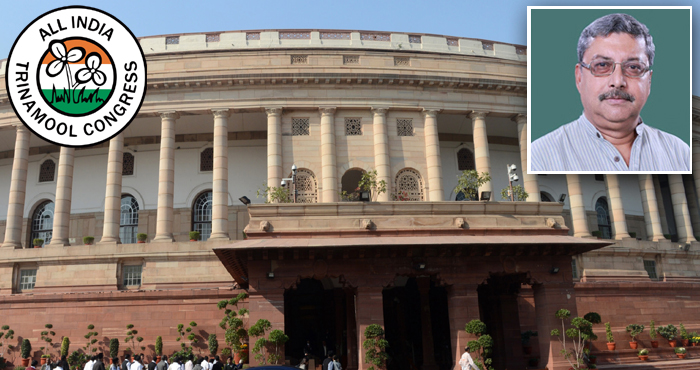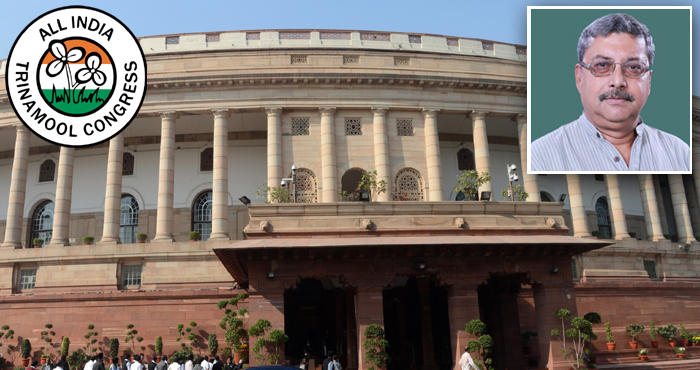FULL TRANSCRIPT
Thank you Madam, for the chance to speak on this. First of all, I am supporting this Bill which has been brought regarding increasing the strength of judges. As on July 1, 2019, in the Supreme Court, 38,982 admission matters were pending, 25,419 complete miscellaneous matters were pending, 13,563 incomplete miscellaneous matters were pending and 20,730 regular hearing matters were pending. Before the five-judge Constitution bench, 43 main matters were pending, and a total of 407 matters, including 364 connected matters, were pending; before the seven-judge Constitution bench, five main matters and eight connected matters were pending; and before the nine-judge Constitution bench, six main matters, and a total of 137 matters, including 131 connected matters, were pending.
Madam, through you, I want to inform that, as on June 28, 2018, the national judicial data grid said that 3.3 crore litigations are pending in the entire country, 2.84 crore matters in the subordinate courts, 43 lakh cases in the high courts, and 57,987 cases in the Supreme Court. The highest number of pending cases are in Uttar Pradesh, the number being 61.58 lakh. Next is Maharashtra, with 33.22 lakh cases, then West Bengal, with 17.59 lakh cases, Bihar, with 16.58 lakh cases, and Gujarat, with 16.45 lakh cases. Two lakh cases are pending in courts, and the ages of these 2 lakh cases range range back to 50 years, with 1,010 cases in the later category.
This is the situation we are faced with. Cases will always go on increasing, and considering the 3.3 crore cases pending, the Central Government should come up with a proposal to increase the strength of the subordinate judiciary and the high courts. A Bill for that should also be brought.
If this is the figure for the number of pending cases for Supreme Court judges, then how many how many judges are required? Now I come to the quality of judges. I am not trying to speak against anything, I am trying to give suggestions. When I came to the profession in 1981 in Calcutta High Court in the month of November, judges took hardly two to three minutes to decide whether a matter should be admitted or not, so vastly knowledgeable were they. Now the judges take 45 minutes, even up to 1 hour 15 minutes to decide. This has to come down. Hence my suggestion on looking at the quality of the lawyers who are elevated as judges.
As a member of the Personnel, Public Grievances, Law and Justice Committee, headed by the Chairman Bhupen Yadav, Member of Parliament in the Rajya Sabha, we went to visit three high courts – Chennai, Mumbai and lastly, Calcutta. At all the three high courts, the best lawyers are often not accepting the post of judge, the next best ones are accepting. Why is this? There is no rule for this to happen, but a rule has been made for the Supreme Court that, unless you are at least 45 years old, you will not be offered with the post of a judge.
There is an issue that happens in the case of this age limit. As an example, we learnt that a person’s name was recommended one year back; his age was 44 years 6 months. Just because he was short by six months, the SC Collegium did not recommend his name. Now, this year, he has been called again as his case has been recommended since he has crossed 45 years and I know personally, he is a brilliant boy. Why this one year has unnecessarily gone? Is there any law? Is there any rule? Whether he is the MVP? Therefore, if you want to pick up brilliant lawyers, then do not wait upto 45 years – 40/41/42/43 years. Since I wanted to come into politics, I inform you, I got the offer at the age of 37 years 6 months. At that time it was not there, it was 1994. Now why are you bringing this down? You can appreciate, had I been accepted then what I would have been now. I am 62 plus. Naturally, why you are not picking up, you are missing the first category of lawyers, that is one of my points.
Second is the behaviour of the judges. I am not blaming everyone. Behaviour of some judges is really shocking. They do not treat the lawyers as a lawyer. Their behaviour has become so rude that sometimes it is painful for the lawyer. When a lawyer goes to court, he is not going for begging in front of the judges; he is doing the case for his client. The client may commit crime, may not commit crime, but very few, I’m not blaming the entire lot. I will request the Honorable Law Minister to bring a law so that their behaviour, their mixing with the people, everything should be covered by the law. Even if a judge commits contempt of his own, it has happened in Calcutta High Court long back when I was there. He felt that since he had uttered so many words, he had committed contempt; therefore he resigned from the judge’s seat. Nowadays, situations have changed.
Third point that I am saying is, some judges coming for two years or three years from the higher judiciary, elevated to High Court for three years, they are just passing time, nothing more than that. Nothing more than that. What is the remedy of that?
The next point is that there are recommendations of Collegiums for appointment of the judges. Madam, through you I will request the Honorable Law Minister that kindly do not keep it pending. I know your answer – I have read from the newspaper “the office of the Law Ministry is not a post-office”. Now, it may not be so, you apply your mind but kindly clear it. Either you reject it immediately or you clear it. In a case of Calcutta High Court, one of the lawyers came, he was recommended two years back, but still it is pending with the central government. I do not want to take names, I do not want to influence anyone or any person but it is still pending. Why is this? And I will request through you Honorable Chairperson, to the Law Minister, please stop giving appointments to the retired judges and rehabilitate them. If you want to bring transparency, if you want that yes our judiciary should be independent judiciary, please stop giving appointments to the retired judges. Not only them, but retired IAS officers, retired IPS officers after their terms. Please take steps to stop it and if it is stopped, I think Indian judiciary will be more independent.
Madam, at the inception, in 1950 when the Supreme Court was established, what was the judges’ strength? Judges strength was eight. Now what I will speak, I think all the Members of Parliament will like, although not directly, but indirectly connected. I will request all the Honorable Members just to hear this. Everywhere, vacancies are being increased. Tendency of the judges, tendency of the work, judges strength have increased, IPS cadres strength has increased. My question is, have you ever thought about this because of the increase of voters, now how many Members of Parliament are required? There is no increase in MPs, if the strength of Members of Parliament is increased, then there will be a hue and cry. I want to tell you, in the 1st Lok Sabha in 1951, total voters in the country were 17.321 crores and at that time the total seats of Members of Parliament were 489. It was increased to 520 in the 4th Lok Sabha that time it was 25.227 crores. Now in 17th Lok Sabha, registered voters are 90 crores! Just see, in the 1st Lok Sabha in 1951, total voters in the country were 17.321 crores, and now we are having 90 crores and 544 other vacancies.
Now in 1950, when the Supreme Court was established, the Judges’ strength was eight. Today, when the Bill would be passed, it would be 34, that is more than 400 percent. But in the case of Members of Parliament, when it was 17.321 crore voters, it was 489. Now we have 90 crore registered voters, and we have only 544 MPs. But the workload is also there. That means there has been a five-time increase. But our strength has not been increased to that extent. But in the case of the Supreme Court Judge, only eight judges were there and now there are 34. That means an increase of 400 percent. Either increase our strength or you give us helping hands. It is impossible for us to handle this 20 lakhs voters, that means another 40 lakh citizens. You give us an additional secretary from the Government. We are being blamed that we are not in a position to meet people, workload has been increased but if one paisa is increased of the MPs, there will be a hue and cry among the public. But in the case of MPs, so much injustices are there, media doesn’t see what is actually happening.



